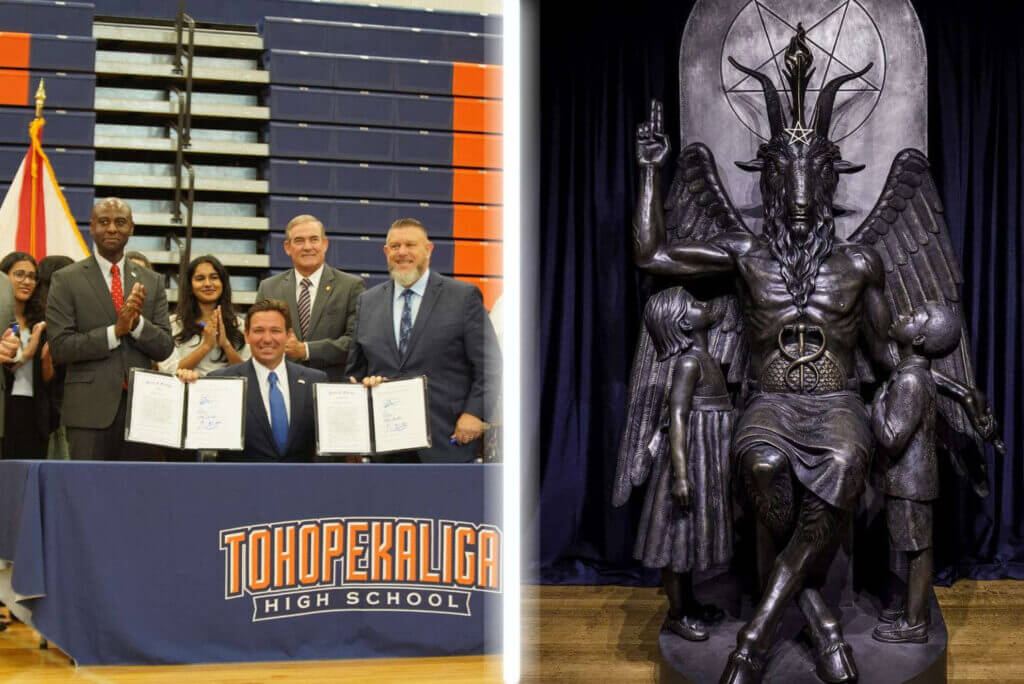Catholic League president Bill Donohue comments on the way voters decided abortion laws:
Voters in Colorado and Louisiana considered abortion legislation on election day and went in opposite directions. The voters not only have nothing in common on this issue, but their preferences are rooted in their religious values, or the lack thereof.
Louisiana voters passed an amendment to the state constitution that forbids the right to an abortion or the public funding of it. This means that even if Roe v. Wade were overturned, abortion rights could not be established in the state. The measure passed by a wide margin. It was sponsored by a Black female Democrat, State Sen. Katrina Jackson; she is a Baptist.
A pro-abortion activist told CNN that “we must keep fighting because women—not just those of means but all women and all people who can become pregnant—deserve the basic right to bodily autonomy….” (My italics.) She did not identify who, other than women, can get pregnant. Nor did the reporter ask her what creature, or creatures, she was talking about. No matter, she wins a gold star for inclusivity.
Colorado has one of the most relaxed abortion laws in the nation. Indeed, it is one of seven states that permits women to terminate their pregnancy any time they want, right up until birth. Some residents said that was a bridge too far and managed to place a proposition on the ballot to ban abortions after the 22nd week of pregnancy. They lost. Approximately 6 in 10 voters rejected the ban.
Why are the voters in these two states so different? Much of the divide can be explained by looking at their religiosity profile, namely the extent to which they differ on religious beliefs and practices.
In terms of an overall religiosity scale, a Pew Research study placed Louisiana at number 4; Colorado ranked 41st. For example, 75% of Louisianans believe in God and 71% consider religion important; the figures for Coloradans are 55% and 47%, respectively.
At first glance, it seems surprising that when it comes to asking whether there are “clear standards of what is right and wrong,” or whether “right and wrong depend on the situation,” there is no difference between the two states. The figures for the two questions for those who live in Louisiana are 38% and 59%; they are 37% and 59% for residents of Colorado.
A closer look reveals that what matters is the source of one’s notions of right and wrong. Religion is the source of right and wrong for 43% of Louisianans, yet it is only 29% for Coloradans; the other two categories are philosophy/reason and common sense.
There is a profound difference between looking to God-based determinants of right and wrong and determinants of a more personal kind. The former for Christians would be the Ten Commandments; for the latter it would be their own moral compass. Thus, the content of our moral values is necessarily reflected in their source.
To put it another way, those in Louisiana are more likely to see abortion as the killing of innocent human beings, something which is proscribed by the Ten Commandments. Those who look to their own values are more likely to make decisions based on what they want, or feel, not on what God ordains.
It should come as no surprise that given the low levels of religiosity in the lives of Coloradans that they would not countenance restrictions on their sexual liberties any more than they would put up with restrictions on their drug use: marijuana was legalized a decade ago. Unfortunately, five years after they did so they had a threefold increase in potheads being admitted to the emergency rooms. Vomiting, racing hearts and psychosis are the most common ailments.
In other words, the hospitals in Louisiana and Colorado are very different. In the latter, they kill babies in the third trimester and flood their wards with drug abusers. In Louisiana, these problems are minimal. It all depends on the source of our moral values. {eoa}
For the original article, visit christiannewswire.com.
See an error in this article?
To contact us or to submit an article





















